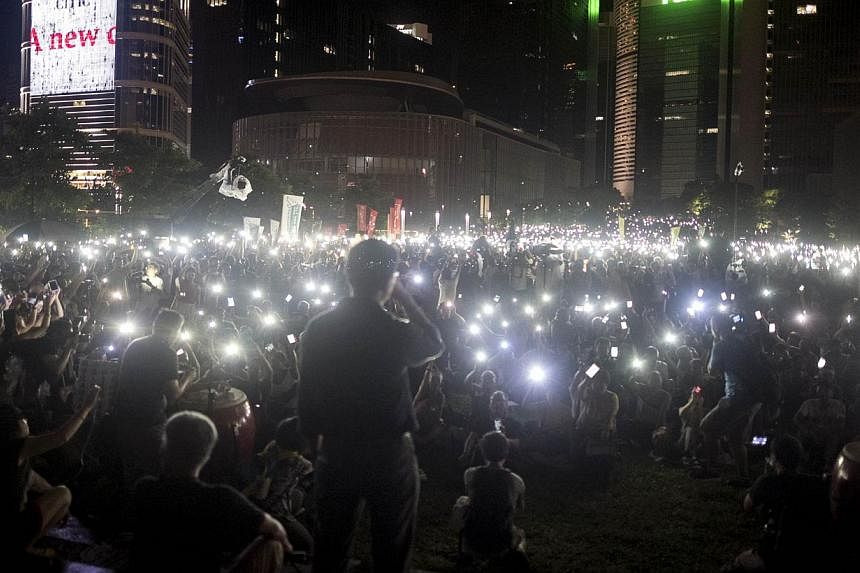BEIJING (AFP) - China stressed on Wednesday that it would tolerate no foreign interference in Hong Kong affairs, after the United States said it supported "universal suffrage" in the territory.
The "constitutional reform of Hong Kong is China's domestic affair which brooks no interference from the outside", Chinese Foreign Ministry spokesman Qin Gang told reporters at a regular briefing.
Mr Qin was responding to comments made by State Department spokesman Jen Psaki in Washington on Tuesday supportive of pro-democracy protesters in Hong Kong, a semi-autonomous region of China.
"The United States supports universal suffrage in Hong Kong in accordance with the Basic Law and the aspirations of the Hong Kong people," Ms Psaki told reporters, referring to Hong Kong's mini-constitution.
The standing committee of the National People's Congress, China's rubber-stamp parliament, said Sunday that Hong Kong citizens would be allowed to elect their next leader in 2017 - but candidates must be chosen by a pro-Beijing committee and must win the backing of more than half of the committee members to stand.
Only two or three will be allowed to stand for election. Democracy activists say the rules mean China will be able to ensure that only pro-Beijing candidates can contest the vote.
Britain handed Hong Kong back to China in 1997 under an agreement which allows civil liberties not seen on the mainland, including free speech and the right to protest.
The NPC standing committee decision "represents an important progress in the development of democracy in Hong Kong", Mr Qin said.
"To safeguard the lasting prosperity and stability of Hong Kong serves the common interests of the international community including the US."
China hopes the international community will see the issue "from a positive and objective perspective", Mr Qin added.
Asked to react to the continuation of a British parliamentary inquiry into Hong Kong, Mr Qin underlined that the region was no longer under London's control.
"It is not the Hong Kong of before 1997," he said, adding that its matters are part of China's domestic affairs.
"We are opposed to any interference from the outside in any forms," he said. "This position is resolute and clear."
Separately, Hong Kong's first post-handover leader on Wednesday urged activists to cooperate over political reforms.
Mr Tung Chee Hwa, the 77-year-old former British colony's chief executive from 1997 until 2005, said at a press conference in Hong Kong that activists should make compromises and stop "pointing fingers" at Beijing.
"Hong Kong is our home," Mr Tung said. "We have to work together.
"The only way out is through working together hand in hand. Otherwise there will be no end to the bitter squabble and the paralysis."

